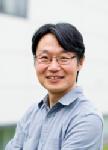MSc Psychological Research - Development of Language and Communication
You will conduct your placements and project with relevant researchers such as:
Dr Suzanne Aussems researches language and gesture development in babies and young children (aged 0-4). She investigates, among other things, how the gestures that adults naturally produce while speaking help young children to learn words and remember events. She is also interested in early communicative abilities and how babies communicate with adults using pointing gestures, eye gaze, and babble noises before they learn how to speak.
Dr Michelle McGillion is interested in how babies grow and develop from the first year of life through to starting school and beyond! The main focus of my research is in understanding how babies learn to talk. There is a lot of variability in when and how quickly children learn language. My work seeks to understand these early differences by considering how babies communicate before they have words, and how the infant, their caregivers and the wider environment contribute to the process of first language learning. To answer these questions, I use a combination of experimental, observational and training study designs.
Prof. Sotaro Kita's research focuses on gestures that are spontaneously produced during speaking and thinking, but also includes the development of communicative abilities in children. A key question of interest to him is how processes of gesture and speech are inter-related, in contexts of perception, production and learning. Prof. Kita is also carrying out research in language learning during infancy, using a recently established infant lab.
What is the MSc Psychological Research?
The MSc Psychological Research offers the opportunity to gain practical experience in research through placements across different laboratories working on thematically related research. This laboratory rotation offers strong candidates for doctoral research more scope to explore different topics within their interests than the traditional options at Master's level. Students first work on ongoing projects with two researchers before going on to develop their own project with a third researcher.




